|
“You may have expected that enlightenment would come ZAP! instantaneous and permanent. This is unlikely. After the first ‘ah ha’ experience, it can be thought of as a thinning of a layer of clouds.” ~ Ram Dass This week’s quote from Ram Dass contains a very important lesson. You might think of enlightenment as a sudden and profound revelation about the true nature of the self- one that comes to you in a flash and continues for the rest of your life. However, Ram Dass reminds us that enlightenment is neither instantaneous nor permanent. Instead of being a single moment of insight that imbues your consciousness with everlasting clarity, enlightenment is more like a series of realizations, each contributing to the gradual awakening of your inner wisdom.
If you imagine your consciousness as the expansive sky, you can see how your thoughts are like little fluffy clouds, gently passing by. However, any fear based beliefs or misconceptions that you held about yourself or the nature of reality would act like layers of clouds in the sky that obscure the sunlight. The purpose of the spiritual path, therefore, is to dispel the clouds of ignorance that prevent your radiant inner light from shining through. How exactly is this accomplished? According to Ram Dass, after the initial ‘ah ha’ experience, enlightenment becomes like the thinning of clouds. But, what exactly is the first ‘ah ha’ experience? Perhaps it is the realization that you are not the clouds, you are the sky. In other words, you are not your thoughts, you are the consciousness that is aware of your thoughts. Or, perhaps the first ‘ah ha’ experience is best summed up by Thich Nhat Hanh who once taught that, “Enlightenment is when a wave realizes it is the ocean.” Either way, the most important takeaway here is to embrace the journey itself, rather than focusing solely on the destination. You don’t want to spend your whole life chasing after enlightenment, only to realize too late that the answer was right there in front of you the whole time. Keep in mind that enlightenment is not like a sudden lightning strike, it is more of a gradual process like the blossoming of a lotus flower. Just as a flower blossom reveals the beauty of a plant’s inner essence, trust that the process of enlightenment will do the same for you.
1 Comment
“It's better to have a short life that is full of what you like doing, than a long life spent in a miserable way.” ~ Alan Watts This week’s quote brings up an important point. Your quality of life is not determined by how long you are able to stay alive but by the richness of your experience. There is nothing wrong with wanting to live for a long time, but the length of your life should not determine your overall satisfaction with it.
Movies, for example, are not judged solely by their run time. If total time elapsed was the only thing that mattered, then all the best movies would be the longest ones. The same is true for music. You wouldn’t say that long songs are necessarily better than short songs. What matters is the quality of the tune, how the music makes you feel while it's playing. We are taught to believe that more always equals better, that the goal of life should be to live for as many years as we can. But, living longer is not the same thing as living better. It's not really about the length of your life, it's about the depth of your experience. So, don't worry that life is too short. Instead, figure out what you like to do, and then do it as much as you possibly can. Life is not about how much misery you can endure, but how much joy you can create. Whatever you choose to do in this world, do it passionately and with all your heart. In the end, a life lived in alignment with your passions is a life well-lived, regardless of how long it lasts. “Truth is not something outside to be discovered, it is something inside to be realized.” ~Osho This week’s quote from Osho is a reminder that the spiritual path leads ever inward. You can travel the Earth in search of the truth, but, ultimately, what you are seeking is not something that can be found in the external world, it can only be found by turning inward and exploring the depths of your own being. At this point in your spiritual journey, you have no doubt come across the claim that the truth lies within. But what does that even mean? What exactly is this great truth that resides within us, and how do we go about realizing it?
Deep down inside, we all want to be happy. However, for many of us, our happiness is reliant on external factors. We believe, for example, that our possessions make us happy- that the more possessions we own, the happier we will become. But relying on material goods for happiness only creates dependency and attachment in the long run. Being attached to your possessions leads to fear and anxiety about losing them. You also run the risk of identifying with the things you own, thinking of them as an integral part of who you are. By doing this, you tie your self-worth to your possessions, leading you to constantly seek out validation from others just to feel good about yourself. So, where does lasting contentment come from? The answer lies in the realization of your true nature. Who are you really, beyond the illusion of your ego? Of course, this is a question that you must answer for yourself. If you take someone else’s word for it, then the truth won’t feel as genuine. Instead, we’ll end with a quote from Alan Watts who once explained that, “You don't look out there for God, something in the sky, you look in you.” “The resistance to the unpleasant situation is the root of suffering." ~ Ram Dass This week’s quote by Ram Dass is a reminder that suffering is not caused by unpleasant situations, but by your resistance to them. While we would all like to lead a harmonious existence, life consists of both ups and downs. It is easy to maintain your inner equilibrium when things are going smoothly, but you will inevitably encounter situations in life that you find unpleasant or challenging. How can you keep your balance, even when you find yourself in undesirable circumstances?
The key to overcoming suffering is to learn to accept unpleasant situations as they are. This doesn't mean that you have to like what is happening, it simply means that you acknowledge what is happening and you let go of your resistance to it. What does it feel like to be in resistance? When you find yourself clenching your jaw or your fists, chances are you are in resistance. When you grip your abdominals and tighten your chest, causing your breath to become short and shallow, you are physically resisting what is taking place in the moment. There is a certain level of freedom that comes with the realization that you are the prime cause of your own suffering. It's not the situation you're in that makes you feel bad, what makes you feel bad is not breathing properly while you are in it. What happens when you don’t get enough oxygen? You start to panic. Your heart starts racing and claustrophobia kicks in as you desperately look for ways to escape from the moment. However, there really is no escaping since the present moment is all that there is. As Thich Nhat Hanh once said, “Anxiety, the illness of our times, comes primarily from our inability to dwell in the present moment.” The key to living in the present is, of course, to breathe. Breathe through the good times, breathe through the bad times. Breathe when you are in a hurry and breathe when you have all the time in the world. By doing this, you generate your own inner harmony, one that is unaffected by outside circumstances. By accepting the present moment, regardless of what it brings, you can remain centered and grounded at all times. By simply breathing in and out, you can release your inner tension and be in a harmonious state wherever you go. “We are all one. Only egos, beliefs and fears separate us.” ~Nikola Tesla In the world of spirituality, you will often hear people proclaiming with great conviction that we are all one. But, what does that even mean? There are currently over 8 billion people living on this planet, how could we possibly all be one? Perhaps they mean that, at the core of our beings, beyond our individual identities, we are all fundamentally the same. If so, then what exactly is the common essence that unites us?
Although we appear different on the outside, when you think about it, we are all basically the same on the inside. For example, we all have the same five senses through which we experience the world. We all have minds capable of thoughts, emotions, memories, expectations, beliefs and desires. We all find ourselves right at the center of our reality. While we have different names, we all refer to ourselves as “I.” Most importantly, we all have consciousness- the silent witness within that is simultaneously aware of both our inner and outer worlds. Consciousness is the common ground we all share. As the Nobel prize winning physicist Erwin Schrodinger put it, “The total number of minds in the universe is one. In fact, consciousness is a singularity phasing within all beings.” To understand this concept, imagine that you have a lamp with an exceptionally bright light bulb. You decide to put a lampshade over the light, but first you take a thumbtack and make a series of holes in it. When you put the lampshade on and flip the switch, hundreds of tiny lights will shine though. Although each individual light will appear to be separate, they all emanate from the same source. Now substitute the light of consciousness at the center of existence for the light bulb at the center of the lamp, and it’s easy to see how we are all, in fact, one. With this concept in mind, you can understand what Ram Dass means when he says, “There is only one of us. One consciousness manifesting into different forms.” Beyond our egos, personalities and beliefs, we all have the same witness within. The consciousness that is aware of my experience is essentially the same as the consciousness that is aware of yours. By truly embracing this understanding, you can cultivate not only empathy and compassion for others, but also a deep appreciation for the richness and diversity of humanity. "The Tao is formless, yet it gives form to all things. The Tao is nameless, yet it is the source of all names." ~Lao Tzu In our last blog, we learned that the trick to navigating the void is to surrender to it, to become one with the infinite, eternal nothingness at the center of existence. However, we were left with a few unanswered questions. For example, how does merging with complete emptiness lead to oneness with all that is? To answer this question, we need to rethink our understanding of the void. It's not so much eternal nothingness as it is a boundless field of infinite possibility and creative potential.
In Taoist philosophy they have great reverence for the void, referring to it as the “eternal and inexhaustible wellspring” from which all existence is derived. They describe the Tao as being formless, nameless and eternal- the source of all creation and the underlying principle of all that exists. Buddhists also believe that emptiness or “shunyata” is the core principle of existence. Emptiness is thought to be the true nature of reality, transcending all dualistic concepts. Therefore, the idea of surrendering to the void shouldn’t necessarily frighten you. It doesn’t mean disappearing forever, it means returning to your original state, your true self, one that is both infinite and eternal. Think of the void as the ultimate ground of being from which all things arise, including the universe, including you. With this in mind, it quickly becomes apparent that physical reality is the real miracle, and that life as a conscious being is the greatest gift of all. “The eternal void is filled with infinite possibilities.” ~ Laozi. In our last blog, we discussed how a drop of rainwater returning home to the ocean is similar to the soul’s journey after death. When a raindrop lands on the surface of the ocean, it loses its individuality and becomes one with the entire ocean. In the same way, it is said that when we pass away from this world, we enter into the void where our individual souls merge with the One. But, what exactly is the void? And how can you best navigate it so that you can easily become one with the whole?
An experience of the void is an experience of absolutely nothing at all. It is complete emptiness- like the state of the universe before the Big Bang exploded onto the scene. Imagine nothing whatsoever expanding out from a central point towards infinity in all directions. Also imagine there is no time. Time is a dimension of the physical universe and since, by definition, there is nothing physical in the void, time does not exist there. What is it like to enter the void? It can be very disorienting at first. Your conscious awareness has been operating inside your physical body for your entire life, and suddenly being unbound from the physical plane can be terrifying. It’s like jumping out of a plane without a parachute, only there is no ground below you to fall towards. Also, you are not just falling downwards, but in all directions at once. You can hold on tight for as long as you want, but there is really nothing to hold on to. Besides, holding on inside the void is like desperately clinging to a paddle after your boat has already drifted over the waterfall. Eventually you stop resisting and, in the ultimate act of faith, you let go. This is when a powerful epiphany takes place. Because, even in the absolute emptiness of the void, your consciousness remains at the center of your experience. You remain the silent witness, the presence inside the abyss, the awareness that's taking this experience in. What's more, since there is nothing else for your mind to focus its attention on, it becomes the subject of its own inquiry. This leads to perhaps the highest realization of all, “Oh my God… I am it!” This is the point when the raindrop becomes the ocean, so to speak. The duality between you, the experiencer, and that which you are experiencing disappears. The next thing you know, you are not just in the eternal void, you are the eternal void. It's like getting turned inside out- all self-created boundaries dissolve, all paradoxes resolve, and you merge into unity with all that is. Of course, since an experience of the void is really an experience of yourself, everyone's journey to oneness is going to be different. However, in the end, we will all need to release the basic struggle inside our own being before we can experience infinite bliss for the rest of eternity. "The soul is like a river, flowing towards the ocean of God. As it merges with the divine, it loses its individuality and becomes one with the infinite and eternal." -Paramahansa Yogananda After an epic winter season here in Tahoe, the billions of snowflakes that fell in the mountains over the last six months are finally melting into water and flowing into the lake. As these various streams travel effortlessly downhill and merge into one, we are reminded of the soul’s journey here on Earth. Just as individual water drops lose their distinct identities and merge into the collective body of the lake, our souls will eventually reach the end of their journey here in the physical realm and merge into the single, all-encompassing consciousness of the Divine.
But, while the “river flowing into the sea” metaphor is insightful, it also appears to be missing something. It doesn’t explain how we became rivers flowing towards the ocean of God in the first place. What we need is a metaphor that demonstrates how these water drops are, in fact, returning home. The water in a river that merges with the ocean, for example, began as water droplets that evaporated from the same ocean in the form of clouds. When these droplets fell to earth and eventually merged back into the ocean, they returned to their original state. But, here's the kicker, these individual water droplets were actually the ocean the whole time- it’s just that they took on a temporary form which made them appear as distinct entities, separate from their original source. This reminds me of a quote by the poet Rumi, who explained that, “You are not a drop in the ocean. You are the entire ocean in a drop.” A single drop of sea water may seem small and insignificant in comparison, but it still contains all the same qualities as the vast ocean. In the same way, your divine spark is indistinguishable from its source. While you may appear as a unique individual, your essence is fundamentally the same as the infinite light of creation from which it came. In other words, the light inside you is the Light! So, don’t get too caught up trying to discover the proper way to connect with Source because you are already it! You have always been it and you will always be it! To connect with Source right now, all you really need to do is get out of your own way and let the light shine through. "If the thought of lack - whether it be money, recognition, or love - has become part of who you think you are, you will always experience lack. Rather than acknowledging the good that is already in your life, all you see is lack." ~Eckhart Tolle This week’s quote is a reminder that your thoughts and beliefs shape your reality, for better or for worse. Simply put, your experience of reality is a reflection of the ideas that you hold to be true about yourself and about life. You might believe that, if only you just had more money, more recognition, or more love in your life, then you would finally experience happiness. However, if you are constantly dwelling on what you don't have, you will continue to experience a sense of insufficiency. This way of thinking is a trap, one that keeps you stuck in a cycle of discontent and dissatisfaction.
The key to breaking free from this cycle is to shift your focus from lack to abundance. The truth is, no amount of money, material possessions or external validation can bring you true happiness since happiness comes from within. Instead of focusing on what you don't have, try acknowledging the good that is already present in your life. You can do this by paying attention to your thoughts and becoming aware of when you are thinking in terms of lack. Whenever you catch yourself doing this, take a deep breath and consciously shift your focus to what you are grateful for. It's important to remember that this is not about denying your problems or ignoring the areas of your life that need improving. It's about approaching those problems from a place of abundance rather than a place of scarcity. So, take a moment to recognize all the good things in your life. Remember that happiness does not depend on getting more of what you want, it depends on your ability to be grateful for what you’ve already got. “An optimist is the human personification of spring.” ~Susan J. Bissonette After enduring a long and challenging winter, this week’s quote is a reminder that spring has finally arrived. And with it, an all pervasive feeling of optimism. Why? Because, after passing through the equinox, during which light and dark were held in perfect balance, the day is now officially longer than the night. That is, for the next six months, we will experience more light than darkness. This alone is reason to be optimistic. Spring is also a time of growth and renewal. Just as spring brings new life and energy to the natural world, a sense of optimism brings new life and energy to your world.
Examples of spring’s optimistic attitude are found all around us. Trees that were battered by storms and covered with snow form new buds on their branches despite the adversity they just faced. Plants begin to grow and blossom regardless of the challenges winter threw at them. Birds, long silent and missing in action, return to the world and start to sing. The sun, so often hidden behind clouds, moves higher in the sky and begins to share its warmth. It's like the world is remembering how to be beautiful again. So, if your goal is to lead a more optimistic life, embrace the spirit of spring and all that it represents. This means not only looking on the bright side, but also looking for the potential for growth and change in any situation. Develop the resilience to weather any storm, knowing in your heart that brighter days are on the horizon. Most importantly, no matter what you have been through in the past, don’t let it discourage you from sharing your gifts with the world. “There is a voice that doesn’t use words. Listen.” ~Rumi This week’s quote comes to us from Rumi, a Sufi mystic and poet who lived in the 13th century. Although he wrote his poetry over 800 years ago, his powerful words have truly stood the test of time. The voice he is referring to is, of course, your intuition- the silent wisdom within. Rumi believed that the heart is a gateway to the divine. That, by connecting with the innermost core of your being, you can connect with the wisdom of divinity.
How do you listen to this voice that speaks without words? To begin with it is necessary to cultivate a state of inner stillness. If your mind is busy with thoughts, feelings, worries and regrets, then it is difficult to hear what your intuition has to say. Once you allow your mind chatter to settle down, your subtle, intuitive sense can emerge. Sometimes referred to as the sixth sense, intuition is beyond rational, logical thought. Since it doesn’t use words, it communicates with images and feelings. You may recall the last time you had a “gut feeling” about something- a strong knowing, conviction or intuitive sense about what to do or about what will happen next. Intuition is like having a dependable friend within, one that always has your best interests in mind. A truthful friend you can ask anything, knowing you will get an honest response. Next time you are faced with a difficult decision, pay attention to how each choice makes you feel on the inside. Understand that, deep down, you already know the right answer. Whichever choice makes you feel the most harmonious within, that’s the right one. By learning to trust into your intuition, you can live in accordance with your highest self, making choices that are aligned with your true purpose in life. "Because of your smile you make life more beautiful." ~Thich Nhat Hanh What makes you smile? One thing that everyone in the world has in common is the propensity to smile. It is perhaps the easiest and most effective way to positively impact yourself and those around you. But, what exactly is smiling and why do we do it? Why is it that people throughout the world perform the same bizarre act of baring their teeth and squinting at each other?
While there are many reasons to smile, the most obvious one is because you are happy. Your smile is a reflection of the joy you are experiencing on the inside. Pleasure is another reason to smile. Whether you are enjoying a delicious meal or receiving a really good massage, you’ll find that your mouth will naturally contort into a smile. You might smile when you feel comfortable, when you feel satisfied, or when you are connecting with others on a deep level. You are also more likely to smile when you witness beauty or perfection in the world, like a rainbow or a colorful sunset. The funny thing about smiling is that it is appropriate in seemingly opposite situations. For example, you may smile when you feel nervous, but you may also smile with confidence. People smile when they do something exciting like skiing, but also when they reach a state of relaxation, like soaking in a hot tub. You are just as likely to smile when you are embarrassed as you are when you are proud. When is the right time to smile? Whenever possible, really. Studies have shown that frequent smilers tend to be happier and have a more positive outlook on life. Furthermore, when you smile, your brain releases endorphins, which helps improve your mood and reduces stress. The best part about smiling is that it’s contagious, triggering others to smile in response. In this way, you can literally spread joy wherever you go. So, as the saying goes, don’t let the world change your smile, instead use your smile to change the world! “True communication is communion- the realization of oneness, which is love.” ~ Eckhart Tolle What does Eckhart Tolle mean when he talks about true communication being communion? Surely he isn’t referring to the Catholic ritual of sharing bread and wine with churchgoers? He’s probably referring to the other definition of communion, which also happens to be about sharing. Specifically, communion is “the sharing or exchanging of intimate thoughts and feelings, especially when the exchange is on a mental or spiritual level.”
Beyond a mere exchange of information, communication is also an energetic exchange. Your thoughts and emotions have no substance, they do not exist in solid form. However, they do exist energetically, in vibrational form. Authentic communication is about giving voice to your internal energetic experience- translating your mental/emotional energy into sound energy to create a shared understanding of your reality. By sharing your thoughts and feelings you find common ground with others, which leads to the comforting feeling that you are not alone in this world- that we are all in this together. Of course, speaking is only one part of communication. Listening is just as important, along with the ability to recognize the emotions and intentions behind the information that’s being shared with you. As Henry David Thoreau once wrote, “It takes two to speak the truth: one to speak, and another to hear.” Therefore, always speak from the heart with the goal of creating genuine connection between you and the person you are communicating with. When it’s someone else’s turn to talk, be present for them, hearing what they have to say instead of eagerly awaiting your next chance to talk. Finally, keep in mind that all speech takes place on the exhale. Regardless of what your truth is, be sure to take a breath in before speaking it. “Life as it is should be enough of a reason to laugh. It is so absurd, it is so ridiculous. It is so beautiful, it is so wonderful. It is all sorts of things together. It is a great cosmic joke.” ~Alan Watts This week’s quote is a gentle reminder that you don’t need to take spirituality so seriously. We often confuse being spiritual with being solemn and withdrawn, like a monk or a nun on their way to morning prayer. We think that having a serious facial expression somehow means you are more holy, more in touch with the Truth. However, according to Alan Watts, the moment that you really understand the truth about life, you will burst into laughter. What exactly is this hilarious insight? How can we get in on the punchline to the great cosmic joke?
It has to do with understanding that you are it. That this universe, this body, this mind, this moment, this breath- this is it. The relationship between God and the universe is commonly explained using a metaphor in which God exists as a brilliant light, one that is somehow veiled, hidden beneath the various forms of the world. But, as Alan Watts tells us, “The truth is even funnier than that. It is that you are looking right at the brilliant light now. That the experience you are having that you call ordinary everyday consciousness- pretending you're not it- that experience is exactly the same thing as 'it.' There's no difference at all. And when you find that out, you laugh yourself silly! That's the great discovery.” If this is true, then what you have been searching for has been hiding in plain sight this whole time. So, relax. Lighten up, as the expression goes. There is really no need to force it. Meditating with a furrowed brow won’t bring on enlightenment any quicker. The only way to grasp the truth is by letting go. If this experience really is ‘it,’ then the best thing you can do is enjoy it. “If you love a flower, don’t pick it up. Because if you pick it up, it dies and it ceases to be what you love. So if you love a flower, let it be. Love is not about possession. Love is about appreciation.” ~Osho This week’s quote about love was chosen in honor of Valentine’s Day. While it is nice that we have a holiday dedicated to love, it is also somewhat confusing. Afterall, we aren’t celebrating love as the fundamental force that created the universe. This isn’t about honoring love as the very fabric of our existence. Instead, we are being sold the romantic version of love- the version that includes attraction, infatuation and possession.
In today’s consumerist society, the idea of love is often confused with that of ownership. Our popular love songs, for example, have lyrics like, “I’ve got to have you,” or “I’m going to make you mine.” We are led to believe that love means holding onto someone tightly and never letting them go. This tendency towards ownership and possession of another can be the cause of great suffering, especially since you can only lose someone if you are convinced that this person actually belonged to you in the first place. There is nothing unnatural about wanting to hold onto that which you find attractive. Whenever you see something beautiful, you naturally want to possess it- to make it yours. Perhaps you think that its beauty will reflect on you. That is, by owning something beautiful, people might think that you are beautiful too. However, contrary to popular belief, true love is not about holding on, it’s about letting go. As Osho points out, the moment you pick a flower, it stops being what you love. In the same way, loving someone is not the same thing as owning them. The best way to love someone is not to limit them or control them, but rather to give them all the space and freedom they need to grow and blossom. So, don’t get too caught up in trying to make someone your Valentine this year. It’s far better to appreciate the one you love than to possess them. “Silence is essential. We need silence just as much as we need air, just as much as plants need light. If our minds are crowded with words and thoughts, there is no space for us.” ~Thich Nhat Hanh Sarah and I recently returned from a three day silent retreat at the Krishnamurti Center in Ojai, California. Having never gone a single day in my life without speaking, I must admit that I was somewhat skeptical going in. What could possibly be gained from sitting in silence for hours on end, doing absolutely nothing? Nevertheless, I went in with an open mind- at the very least, it was a chance to have a nice long rest.
We arrived on Friday afternoon and got settled into our accommodation. We then walked up a winding path through a beautiful orange grove to a large meditation hall at the top of the property. After a short introduction from the retreat facilitator, she rang a bell and we were plunged into silence. I was surprised that we were not given any instructions on how to sit or how to breathe or any tips about the best way to meditate. I later learned that Krishnamurti did not teach any method at all, other than to sit silently and simply observe what comes up for you. We were given a small booklet with a few short quotes by Krishnamurti which I found quite helpful. “Is there a reality that is not put together by thought?” he asks at one point, which is something I’d never really thought about. His theory is that the stillness you are seeking is beyond thoughts, beyond the chattering of the mind. As such, no amount of mental effort will help you get there. He points out that we mistakenly divide our minds into two parts, with the so-called higher self attempting to control the lower self. As Krishnamurti would say, if these two entities do exist inside of you, are they not also a product of thought? In the same way, seeing yourself as a seeker of inner peace or as the observer of your thoughts creates further mental divisions which prevent you from experiencing true peace. “The moment there is an observer,” he explains, “silence is not.” The idea being that the observer and the observed are, in fact, one and the same. With this in mind, I sat quietly on my cushion for three days and made no attempt to control my thoughts. What I discovered is, much like how a muddy puddle becomes clear if it is left undisturbed for long enough, eventually all the thoughts that muddied up my consciousness settled down and my mind was still. That is, for fleeting moments, the silence on the inside became a reflection of the silence experienced on the outside. It was like a brief glimpse into the original state of the mind- before it became identified with ego and form. Of course, the moment you think, “Hey, check it out- my mind is still,” it no longer is, and you are back to square one. However, it’s not about how long you can sustain inner silence, it’s about recognizing stillness as your mind's natural state. Silence is found at the core of your being, beneath a tangled web of thoughts and feelings. It’s the background against which all mental activity takes place. Silence is not something you can capture or control- it’s something that you fundamentally are. So, in the quest to find inner peace, don’t get too caught up on methods and techniques. Sometimes the best way to find stillness is simply to get out of your own way and allow what is already present to shine through. “Impermanence is a principle of harmony. When we don’t struggle against it, we are in harmony with reality.” ~ Pema Chödrön Living in harmony with reality is one of the main goals of spirituality. To live in a state of surrender, free from internal struggle or conflict. One of the biggest roadblocks to achieving internal harmony is the terrifying realization that, one day, your life will come to an end. As beautiful as life is, it can't go on forever. But being aware of your mortality doesn’t need to be a source of stress and anxiety. By coming to terms with the impermanence of existence, you can find even greater harmony within.
All life in the universe is subject to impermanence, it’s a necessary component of existence. Imagine what the world would be like without impermanence keeping things in balance- we would quickly be thrown into chaos. Simply put, without death, life would not be possible. But, if impermanence is an essential ingredient of life, then why does it cause us so much suffering? As Thich Nhat Hanh once said, “It is not impermanence that makes us suffer. What makes us suffer is wanting things to be permanent when they are not.” Resisting impermanence leads to the feeling that time is running out. The realization that life is halfway over, for example, can lead some people to have a midlife crisis. The question is, do you really want life to be never ending? When your favorite song comes on the radio, do you wish it would go on forever? While the song is playing, you don’t get hung up on the fact that it will eventually be finished. You also don’t start to panic at the halfway point, you just appreciate the middle part of the song. Likewise, you don’t get upset when the song is over, you are just happy that it came on in the first place. So, don’t let yourself get weighed down by your own mortality. All good things must come to an end. No matter where you are in the symphony of your life, the most important thing is to enjoy the music. “If we had no winter, the spring would not be so pleasant: if we did not sometimes taste of adversity, prosperity would not be so welcome.” ~Anne Bradstreet This week’s quote is for those of you who are struggling with the winter blues. While it’s perfectly understandable that you feel down during the winter months, it also isn’t necessary. In life, one of the most common causes of suffering is wanting things to be different than they are. Most people don’t like being cold so, whenever it’s cold outside, they reject it and wish that it was warm instead. This rejection of reality continues until the seasons eventually change and it starts getting too hot. Now it’s the heat that gets rejected and resisted in favor of cooler temperatures.
What people forget is that we are living in duality, one in which nothing can exist without its opposite. Just as there can be no experience of light without the presence of darkness, there can also be no experience of heat without the existence of cold. Like up and down, these pairs of opposites have a codependent relationship- one cannot exist without the other. You would have no concept of good weather, for example, if bad weather never occurred. Similarly, you cannot appreciate happiness having never experienced sadness or pain. So, rather than rejecting experiences that don’t match your version of how reality should be, appreciate them for showing you what the other end of the spectrum is like. We all need to endure the occasional unpleasant experience in order to be grateful for the times when things are going well. "Forgiveness is not an occasional act, it is a constant attitude." ~ Martin Luther King Jr. This week’s quote by Martin Luther King Jr. brings up an important point. While we all aspire to live from the heart, remaining in a state of love requires constant vigilance. Living in a continuous state of forgiveness is one of the most effective ways to keep yourself centered in the heart. Not just occasionally forgiving those that have wronged you, but forgiving everyone, at all times, no matter what happens. As Reinhold Niebuhr puts it, “Love is an act of endless forgiveness. Forgiveness is me giving up my right to hurt you for hurting me. Forgiveness is the final act of love.”
Perhaps the best part about forgiveness is that it allows you to be free from the chains of the past. Not forgiving someone who has hurt you feels like a heavy weight on your chest, a burden that you carry with you wherever you go. This emotional weight can color your reality, blocking you from fully experiencing the joy of life. Forgiveness means that you feel so secure in your own energy that you no longer seek revenge or retribution upon those that have wronged you. True forgiveness allows you to put down your burden, to release your emotional weight and move on with your life with a newfound lightness of being. So, the next time you find yourself getting upset by the actions of others, see how quickly you can move into a state of forgiveness. It might not change what someone just did to you, but it will reduce the amount of suffering you must endure as a result. Don’t think of forgiveness as an act of weakness but rather as an act of strength- one of the highest expressions of love there is. Instead of taking things personally, practice radical forgiveness in which you instantly forgive others, regardless of the circumstances. And keep in mind that, oftentimes, the person in your life that is most in need of your forgiveness is you. "As we wish each other a Happy New Year, let us determine to be more sincere, compassionate, warm-hearted human beings, trying to make our world a more equal place. That way we'll actually make it a happy year." ~Dalai Lama Welcome to the new year, full of exciting opportunities and possibilities! The best part about a new year is that you can hit the reset button on life. You can put everything that happened to you last year squarely in the past where it belongs and enjoy a blank slate for the year to come. It’s like wiping all the chalk off a messy chalkboard and being left with a nice, clean canvas upon which you can create a whole new work of art.
That’s why now is the perfect time to set intentions and make healthy resolutions. The story of 2023 hasn’t been written yet, and there is no reason why this year's story needs to be the same one you told last year. This year can be anything you want it to be, as long as you set positive intentions and have the will power to follow through on them. Of course, the day that we celebrate the new year is completely arbitrary. Our whole measurement of time is derived from our planet revolving around the Sun. We have collectively chosen a specific point on the Earth’s elliptical orbit and, whenever our planet completes a full revolution and returns back to that agreed upon point, everybody cheers and welcomes new beginnings. The thing is, we could have chosen any point on the Earth’s orbit as the official reset point, we just happen to have gone with January 1st. From this perspective, any day of the year could be New Year’s Day. Every day you wake up you are given the same blank slate- the same opportunity to clean your proverbial chalkboard. Regardless of the date, you are always given the opportunity to put the past behind you and take steps to manifest a better future for yourself. Happy New Year everyone! Thank you for reading- we appreciate you! Looking forward to another year of self-discovery as we continue walking the pathless path together. Please don’t hesitate to reach out to us if there are any topics you would like covered in future blogs or if you find any inspirational quotes that you like. We'd love to hear from you! Thanks for being a part of our community! "Christmas is the spirit of giving without a thought of getting. It is happiness because we see joy in people. It is forgetting self and finding time for others. It is discarding the meaningless and stressing the true values." ~ Thomas S. Monson As we enter the darkest days of the year, it’s time once again to get into the spirit of the season. During this time, it’s only natural that we turn towards friends and family for comfort and warmth, finding joy and connection in each other’s company. But what exactly is the Christmas spirit? Is it all just a corporate ploy to encourage more retail spending, or is there more to it?
What we traditionally think of as the Christmas spirit can also be thought of as a celebration of the human spirit. More specifically, it’s a celebration of the positive side of human nature. It’s the time of year when we collectively emphasize the heart-based emotions, reimagining a world in which selfishness and distrust is replaced by generosity and goodwill to all. This is also when we temporarily stop trying to make ourselves happy and focus instead on the happiness of others. As the author Toni Sorenson puts it, “The true Christmas spirit is putting other’s happiness before your own and finding you’ve never known such joy!” So, if you are looking for a way to get into the holiday spirit, one suggestion is to practice kindness wherever you go. A smile, a gesture or some kind words is all it takes. In truth, any words or actions that come from your heart will likely be in line with the spirit of the season. Understand that you create the joy of the holidays, not the other way around. This is only the darkest time of year if you forget to bring your light. “First forget inspiration. Habit is more dependable. Habit will sustain you whether you’re inspired or not.” ~ Octavia Butler This week’s quote has the potential to be a real game changer. We are all looking for inspiration- searching for that magical ‘aha’ moment that fundamentally and permanently changes life for the better. While there is nothing wrong with being inspired, inspiration will only get you so far. Inspiration is what motivates you to go out and join a gym but, in the long run, habit is what determines whether or not you become a stronger, healthier, happier person. While inspirational quotes have the power to bring a shift to your thinking, if you are serious about making a positive change, there also needs to be a shift in your habits.
Success in life does not hinge on reaching a perfect understanding of the nature of reality- although that certainly would be nice. Rather, your success is the result of developing and maintaining positive daily habits and routines. In life, change is rarely instantaneous, it’s something that takes place over time. No single action is going to immediately transform your life for the better but repeating that action every day for a month or a year will. Your daily habits have the power to either make you or break you. If you examine your current habits and find they are not serving you, then this might be the best place to start. Ask yourself why you do the things you do. You’ll find that most of the actions you take today are the same actions you took yesterday- and the day before that. We tend to unconsciously create the same day over and over again, perhaps because it brings us a sense of comfort and familiarity. Therefore, if you are ready to change your daily habits and become the best version of yourself, be prepared to step out of your comfort zone. Breaking out of old behavior patterns is always going to feel strange at first simply because it’s not what you are used to. However, after establishing a new, more positive routine, you will soon find yourself back in the groove. “If you choose not to find joy in the snow, you will have less joy in your life but still the same amount of snow.” ~ Anonymous This week’s quote does not need a great deal of explanation. Essentially, it’s a reminder that your happiness should never be dependent on forces that are beyond your control. Many people overestimate the amount of influence they have over the Earth’s weather patterns. When a storm hits, you often hear people taking credit for it, as if they are the prime mover of all events. “Of course it’s raining today,” they claim, “since I just washed my car yesterday.” This egocentric thinking leads to all kinds of unnecessary suffering as people falsely believe that they alone are responsible for everything that happens in the world, both good and bad. To avoid this trap, probably the best thing you can do is stop taking things personally. When the snow starts falling, don’t think of it as nature’s way of punishing you or the world taking revenge on you because of something you did. Instead, accept it as a naturally occurring phenomenon that is beyond your control. One of the hardest things to accept about life is that it is not all about you.
Another point this quote brings up is that there are two ways of looking at any phenomenon. The first way is from the standpoint of appreciation that our world is full of beauty and wonder. People who adopt this viewpoint see the snow falling from the sky as another example of the miraculous nature of the Universe. Others, however, will only see the snow as an inconvenience or a nuisance- a hassle that they will have to deal with. The thing is, whether you go with the first viewpoint or the second one, it's not going to make any difference to the amount of snow that falls. So, the next time you find your heart sinking when you look at the weather forecast, ask yourself if being negative will achieve any purpose or give you any kind of advantage over what happens next. Remind yourself that you don’t control the weather- the only thing you control is your attitude towards it. “Paradise is not a place; it's a state of consciousness.” ~ Sri Chinmoy What is your idea of paradise? For some, it’s sitting on a pristine, white sand beach in the Caribbean, sipping on a cocktail under the shade of a palm tree. For others, it’s standing on the shore of an alpine lake at sunset, surrounded by pine trees and snowcapped mountains. We think of paradise as an ideal place where everything is perfect, all our needs are met, and there is no trouble or stress. The only problem is, as Jon Kabat-Zinn says, “wherever you go, there you are.” Many people go on vacation to escape from their stressful lives only to discover that they are still the same stressed-out person that they were at home, the only difference is that the scenery has changed. What most people don’t realize is that paradise is not a physical place so much as it is a state of mind. You can go to the most paradisical places on Earth, but getting out of your own head long enough to resonate with the beauty and perfection of your surroundings is entirely up to you.
If paradise is a state of consciousness, then what can you do to cultivate it? It begins by being aware of how you spend your time. If your life is so unbearable that you can’t wait for your next chance to take a break from it, then obviously something needs to change. As inspirational author Seth Godin would tell you, “Instead of wondering when your next vacation is, maybe you should set up a life you don’t need to escape from.” Probably the best way to find paradise is to practice being peaceful and content today. Afterall, if you are not able to let go of your stress right now, what makes you think you will be able to let it go in the future? Especially since, when that long-awaited future does finally arrive, you will inevitably find yourself in the present moment once again. So, don't fall into the trap of only living for your next vacation. While it’s nice to have something to look forward to, sacrificing your joy today only makes it more difficult to experience joy later on. Instead of dreaming about one day finding paradise on Earth, work on creating it within yourself first. “Gratitude can transform common days into thanksgivings, turn routine jobs into joy, and change ordinary opportunities into blessings.” ~ William Arthur Ward This week’s quote is a timely reminder of the power of gratitude. More than just saying “thank you” after someone does a favor or service for you, gratitude is a powerful emotion that can fundamentally shift the way you experience life. It all comes down to how you view your existence here on Earth- do you see your life as a miracle or as a hassle? When you wake up in the morning, are you grateful for another day or do you feel like your life is an obligation? In other words, is life something that you want to do or is it something that you have to do? By establishing gratitude as the baseline emotion through which you experience reality, you don’t accidentally take life for granted. Regardless of what challenges the day brings, there’s always a part of you that’s just happy to be here.
However, we have only covered the first part of gratitude: feeling grateful. We haven’t even gotten to the best part: being grateful. Afterall, as author William Arthur Ward puts it, “Feeling gratitude and not expressing it is like wrapping a present and not giving it.” Think back to a time when you were truly grateful for someone or something. Remember how expansive and heart centered your energy felt? Now remember how it felt to express that gratitude. When you share your heartfelt appreciation with others, not only do you feel good inside, but so does the person that you’re thanking. So, this Thanksgiving, don’t forget to give thanks- both for your life and for the people who make it better. |
Like what you are reading? Sign-up here for our weekly newsletter featuring a new inspirational blog every Wednesday.
About The AuthorNick Hughes is a massage therapist, yoga instructor and co-owner of Well Being. Influenced by the ideas of Alan Watts, Eckhart Tolle, Ram Dass, and Deepak Chopra, Nick presents his unique take on human existence with the goal of helping others live a happier life. Archives
July 2024
Categories |

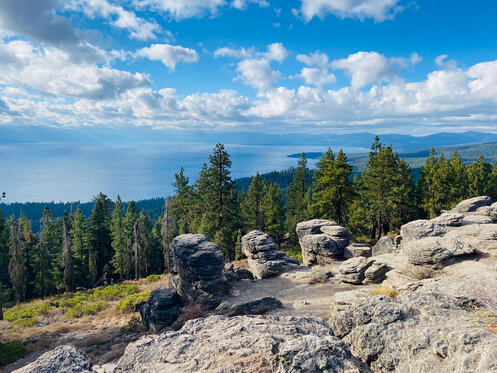
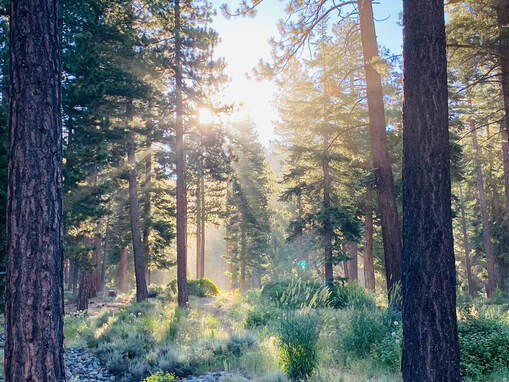
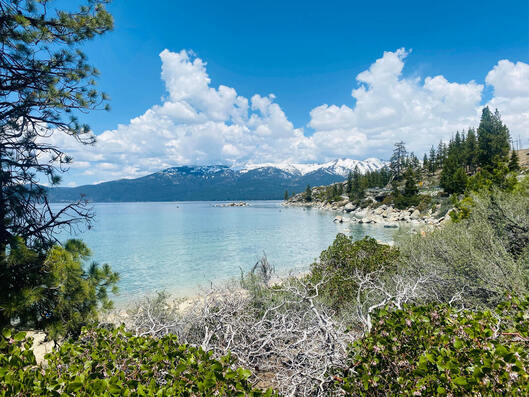
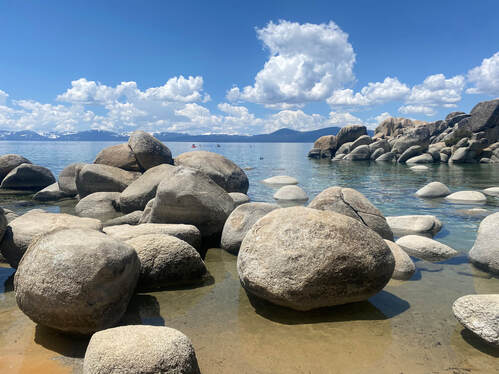
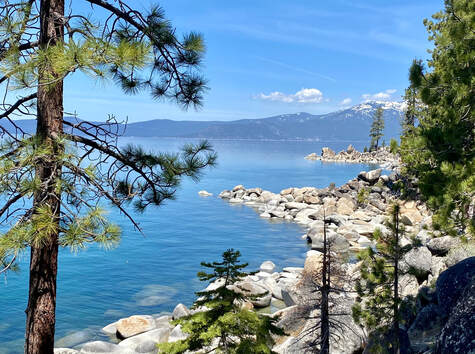
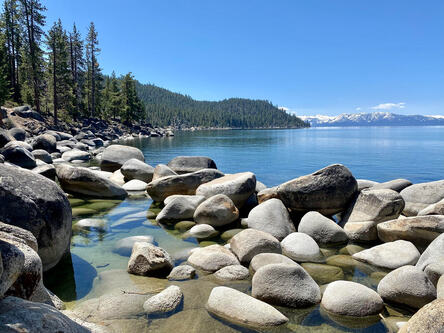
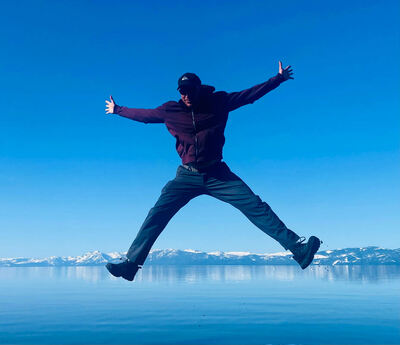


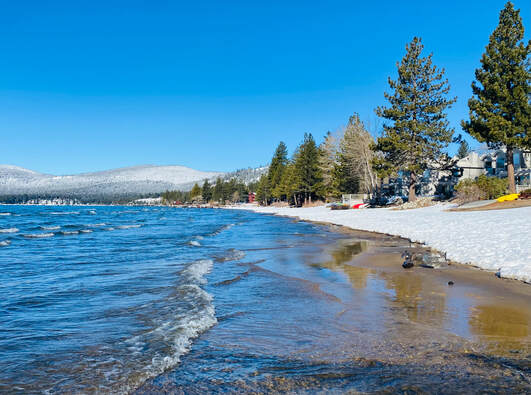


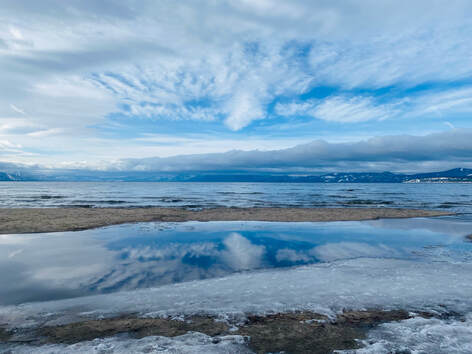


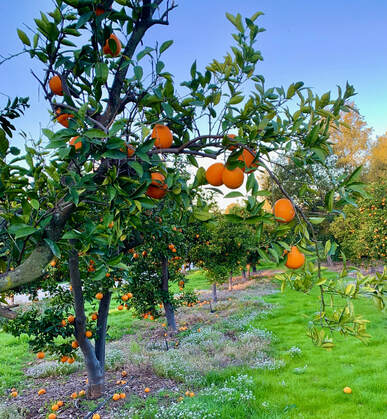

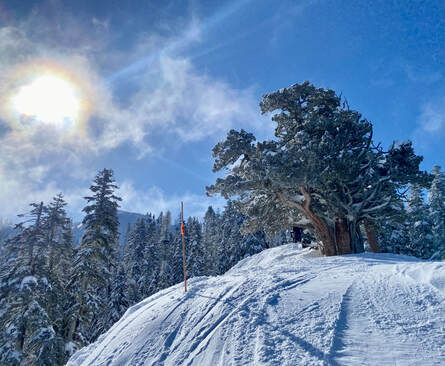





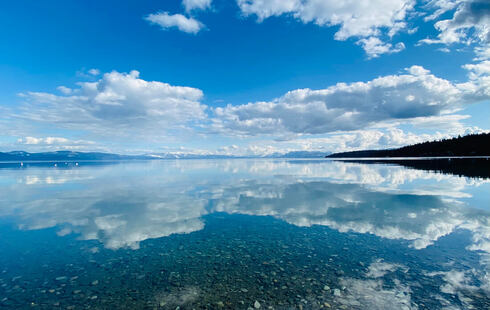
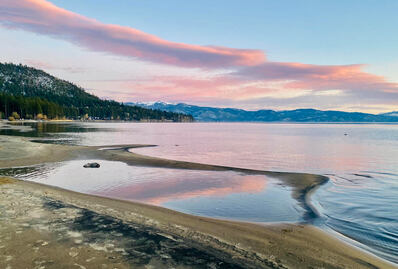
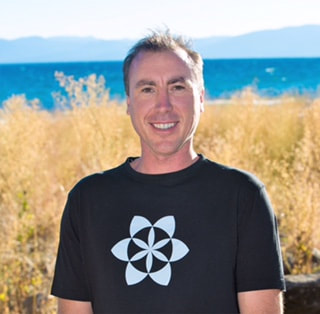
 RSS Feed
RSS Feed